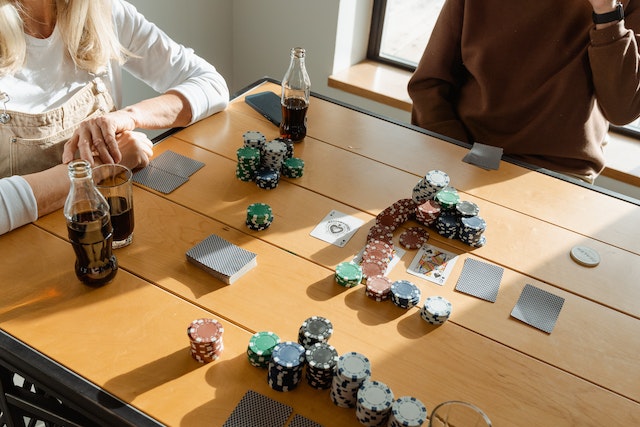Poker is similar to any other game. The game may appear simple at first but becomes more complex once you master the skills and strategies. To become a professional player, you must learn to read your opponent, assess them, and determine what they are capable of doing with their hand. This isn’t always easy to do because no poker player like at เว็บสล็อตเปิดใหม่ล่าสุด will tell you what cards they have in their hand. Here is how to play poker like a pro.
Learn the basics
You must first master the basics before you consider becoming a professional. Understanding poker hand rankings, betting strategies and rules is important. To build a solid foundation, spend time studying and practicing these aspects in low-stakes poker games.
Bankroll Management
Effectively managing your bankroll is one of the most important aspects of professional poker. It’s important to make sure your bankroll can handle losses. As a general rule, you should have 20-30 buy-ins per stake. You can then ride out the downswings of a game without losing your money.
Learn to Improve Your Game
Success in poker requires constant learning. Watch training videos, join online poker forums and read books. Platforms such as Run It Once (Upswing Poker), TwoPlusTwo, and Upswing Poker offer players of all levels valuable resources. Tracking software can also be used to analyze your own play and identify areas of improvement.
Specialize in a Format
There are many different formats of online poker, including cash games, sit-and go’s and tournaments. Specializing in one format as a professional can be beneficial. Each format has its own set of skills, strategies and requirements. Focus on the format that best suits you and become an expert.
Develop a Solid Strategy
Your style of play should be clearly defined and flexible. Create a strategy to suit your preferred format, be it tight-aggressive or loose-aggressive. Be ready to change your strategy depending on the game and opponents.
You can learn to read your opponents
Reading your opponent is just as important as reading the cards. Learn to recognize tells, whether they are physical or behavioral, and adjust your strategy accordingly. You’ll have to use betting patterns, timing and other digital cues in order to make informed online decisions.
Create a Network
Poker players who are professionals often have a group of people with similar interests and goals that share strategies, insights, and provide support. Join poker communities, go to live events and make connections with other players. You can grow as a poker player by collaborating with other players.
Discipline and emotional control
Poker is a game of discipline and emotional control. How you deal with losing streaks can make or break your poker career. Stick to your loss limits. Avoid playing while you are emotionally unstable or tilted. Self-control is essential for long-term success.









